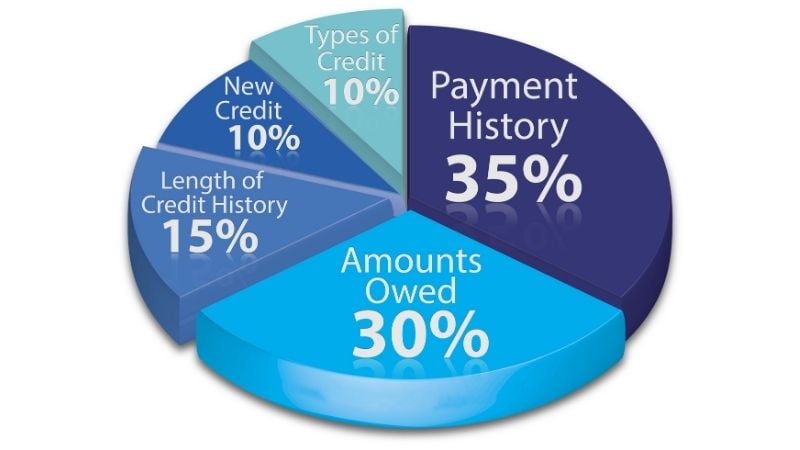Understanding Income, Debt, Credit Score, and Debt-to-Income
Understanding key financial terms is essential for first-time homebuyers (and anyone else getting ready to borrow money from a lender). Knowing what...
6 min read
 Twin Cities Habitat for Humanity
:
10:00 AM on May 12, 2020
Twin Cities Habitat for Humanity
:
10:00 AM on May 12, 2020


Credit is one of the most important elements of your financial well-being. It can make all the difference for your life goals, like getting a new car, buying a new house, and starting a business. Maintaining a good credit score (or bringing it back up) can open up a lot of opportunities you typically can't afford without credit.
First-time homebuyers should be well-versed in their credit score and credit report – everything from the basics like what it is and how it's used to tips on how to improve it to get better mortgage rates. Read on for a full rundown of everything you need to know.
During the COVID-19 coronavirus pandemic (and the economic downturn it's caused), many credit holders are justifiably worried about their credit. We're here to answer your questions about how COVID-19 impacts your credit score – and how to control your credit score in the meantime.
The first and most obvious way the coronavirus pandemic can impact your credit score is by taking away your source of income. Because people can't visit businesses or go to work as they normally would, businesses aren't earning enough and people are losing their jobs – and their income. That limits their ability to pay off their loans, mortgages, and credit card bills, which has a direct correlation to the health of their credit scores.
If you're struggling to keep up with credit payments like loans and your mortgage during the COVID-19 crisis, use these tips to stay ahead and reduce its effect on your credit score.
Simply, your credit score is based on what you borrow from lenders and how quickly you're able to pay it back. When you borrow money from a creditor, you enter an agreement to pay that money back within a certain time frame.
Each loan and loan payment is tracked in something called your credit report, which is a log of how much you borrowed and how quickly you pay it back. Lenders use a number called a credit score as shorthand for how "good" you are at paying back your loans. Most people's credit scores fall between 600 and 750 – and the higher, the better. Quick, sizable, and consistent loan payments are the primary factors used to determine your credit score.
Because homes cost more than most people have saved, creditors offer a home loan, or a mortgage, to people looking to buy a home, and your credit score can make a huge difference. Different mortgage providers have different criteria for deciding whether or not to grant a mortgage to a first-time homebuyer, but most require the following:
Like all creditors, mortgage lenders want proof that you're responsible with money you've been loaned. They want to see a track record of frequent and consistent payment on other loans, reasonable credit utilization, and a good reason to believe you'll be able to keep paying until the mortgage is paid off.
Consistent payment (along with other tips like keeping your credit utilization low, reducing debt, and limiting lines of credit) is key to achieving and maintaining a good credit score. The higher your credit score, the more likely you are to be awarded a mortgage – and you'll receive a better interest rate on that mortgage, too.
If you fall into the low credit score category, you may be considered a “higher risk” borrower to some lenders – it's seen as a sign that you might not be able to pay back a loan on time. The good news is that even if your credit score is low, you have the power to change and improve your credit score over time with these proactive tips:
You shouldn't fly blind when it comes to knowing your credit score. The three credit reporting agencies, or credit bureaus (Equifax, Experian, and TransUnion), let you check your credit report for free once every 12 months.
You can stagger your reports, too, so you get three credit reports every year. (All three bureaus should have the same information, so the order doesn't matter.) For example, you can:
Then repeat the process the following January. Even if you don't have a big purchase like a home to plan for, it's a great idea to dig into your credit report often. It gives you much more insight into how your loans, spending, and payments impact your credit than your credit score can.
Here are some free credit reporting services online, by phone, or by mail:
It's natural to have questions about your credit score and how it will impact your ability to buy your first home. Don't hesitate to bring your questions to Twin Cities Habitat for Humanity's Homeownership team or the loan officers at TCHFH Lending, Inc. We both have the same goal – to help you buy a home! We'll help you develop a step-by-step plan to improve your score, as well as assist you through some of the other important steps in the home buying process.
Your gift unlocks bright futures! Donate now to create, preserve, and promote affordable homeownership in the Twin Cities.

Understanding key financial terms is essential for first-time homebuyers (and anyone else getting ready to borrow money from a lender). Knowing what...

Whether you’re actively searching or simply thinking about starting to look for a home, you can put this time to good use by trying to improve your...

Whether you’re actively searching or simply thinking about starting to look for a home, you can put this time to good use by trying to improve your...